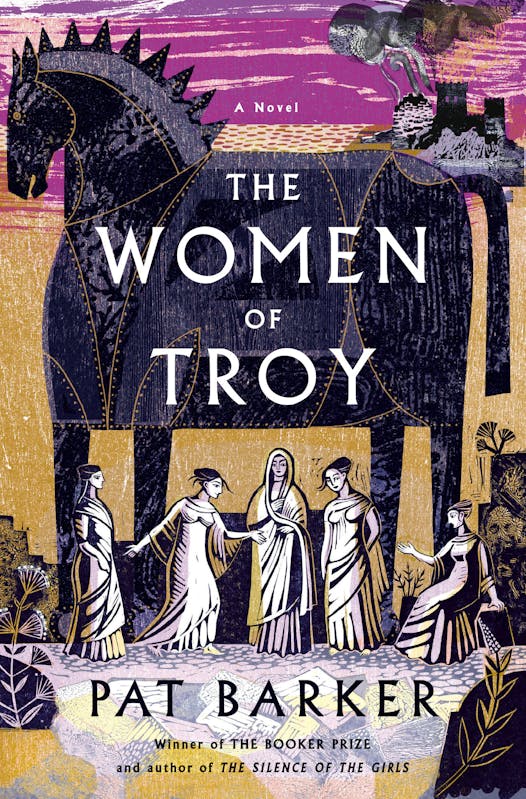Pat Barker's 2018 novel "The Silence of the Girls" marked both a late-career high and an intriguing change of direction for the Booker Prize-winning author. Instead of playing to her strengths and serving up another depiction of innocent lives transformed by the carnage and chaos of 20th-century conflicts, Barker stepped out of her comfort zone and gave voice to the marginalized women of the Trojan War.
Chief among them was Briseis, a former Trojan queen who became Achilles' captive concubine. In Homer's "Iliad" she was a minor character with little to say. Barker recast her as an unsung heroine and allowed her to loom large and speak out. She does so again in Barker's latest novel. A richly rewarding sequel, "The Women of Troy" offers a further bold and necessary reinterpretation of an ancient tale while at the same time chronicling the next dramatic chapter in Briseis' untold story.
That chapter begins with the fall of Troy. The triumphant Greeks are quick to assert their authority. King Priam, recently slain and reduced to "a bag of blood and broken bones," is denied a burial. An edict is issued instructing all Trojan males to be killed, first and foremost those with royal bloodlines. Trojan women are taken to the Greek camp with the other spoils of war and turned into slaves and mistresses. Angered by such brutality, the gods take the wind out of the Greek warriors' sails and prevent them from returning home.
While waiting for the impasse to break, Briseis reviews her situation. Once the "prize of honor" awarded to Achilles, she is now the trophy wife of his companion, Alcimus. She is also pregnant, emancipated and prepared to roam the lawless camp to visit less fortunate women and raise their spirits with little acts of kindness.
She meets the much-hated Helen, whose renowned beauty and grace have faded and who is now "just a moldy old bone for feral dogs to fight over." Andromache is "erased by grief" for her dead child and Priam's widow, Hecuba, tears herself apart. Only Amina, a headstrong young teenager, refuses to be broken, and puts a plan into action to defy her oppressors. But when she disappears, Briseis goes in search of her, and in doing so discovers just how much freedom and authority she has in this man's world.
At various points Barker turns her attention to men-only exploits, whether the pre-battle waiting game in the Trojan horse or a chariot race. She also brings in two male perspectives — those of disgraced Trojan priest and seer Calchas, and Achilles' vain, boastful adolescent son Pyrrhus. The change of focus can be refreshing.
However, the narrative is at its most absorbing when Briseis is on the page and observing the scheming and infighting among the Greek men and the resilience and bravery of the Trojan women. She is a wonderful creation. With luck, Barker is already planning her next move.
Malcolm Forbes has written for the Times Literary Supplement, the Economist and the New Republic. He lives in Edinburgh, Scotland.
Dirty Work
By: Eyal Press.
Publisher: Farrar, Straus & Giroux, 320 pages, $28.
About 1 in 4 US adults 50 and older who aren't yet retired expect to never retire, AARP study finds
Music Review: St. Vincent's art-rock burns bright on seventh album, 'All Born Screaming'
Cristian Măcelaru to become music director of Cincinnati Symphony Orchestra in 2025-26
Italy bans loans of works to the Minneapolis Institute of Art in a dispute over an ancient statue


